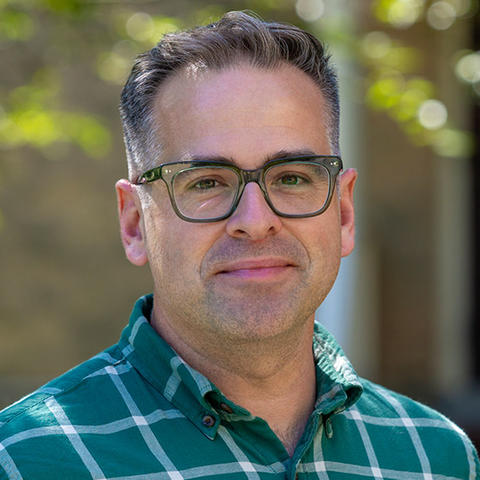Summer Centered: Abigail Pruszinkski '27 Helps Honor the Memory of Guatemala's Missing

Photo by Patrick Montero.
Details
The prospective English major spent the summer working with Grupo de Apoyo Mutuo, which searches for those who disappeared during the country’s civil war.
Throughout Guatemala’s 36-year civil war, it’s estimated that more than 200,000 people perished and 45,000 were forcibly disappeared, the vast majority of them Indigenous Mayans. Now, nearly 30 years after the war’s end, the search for the missing continues.
At the forefront of that effort is Grupo de Apoyo Mutuo (GAM), an organization founded in Guatemala during the conflict by individuals searching for their missing loved ones. Since 2017, GAM and Haverford have been engaged in a fruitful partnership that’s convened students, scholars, and human rights activists to build a digital archive housed in the College’s libraries. That archive has swelled to include more than 25,000 pertaining to nearly 3,500 cases of disappearances during the war. So far, about 80% of the materials have been digitized.
Every year, the Center for Peace and Global Citizenship sponsors Haverford students to work with the libraries and even travel to Guatemala to conduct interviews with families of the missing to add to the growing archive. This summer, Abigail Pruszinski ’27, a prospective English major and double minor in Spanish and political science, was one of them. She was joined by Juliette Ortiz ’27 and Camila Rosario ’26.
The summer experience was a perfect opportunity, Pruszinskisays, because it allowed her to deepen her Spanish studies while contributing to an important human rights-focused project. The path, she says, was more engaging than pursuing part-time service work in her beach destination hometown, Wildwood Crest, New Jersey. The fellowship also included an opportunity to travel to Guatemala for meetings with GAM’s leaders and visits to important anthropological sites, other NGOs, and the country’s Holocaust museum, Central America’s first such institution.
“In addition to Spanish, this opportunity includes aspects of law and justice, something I’m also very interested in,” says Pruszinski, who is considering law school after Haverford, says. “It was a great fit for me to learn a little bit more about what I might pursue in the future.”
As GAM recognizes the 40th anniversary of its founding this year, Pruszinski says the scope of her work differed slightly from the fellowship’s previous endeavors. Many of GAM’s earliest members, advocates for the disappeared, were subsequently disappeared themselves, she says. Throughout her fellowship, she was provided with names of those once aligned with the organization and used materials in the archive at Haverford to build profiles on them.
“Since GAM was started during the conflict, it was a very intense period and people were disappearing frequently,” Pruszkinski says. “Being able to use Haverford’s database to attach real information to each name and form an identity around that person has been really rewarding.”




